Copyright 2020 by The Curators of the University of Missouri
University of Missouri Press, Columbia, Missouri 65211
Printed and bound in the United States of America
All rights reserved. First printing, 2020.
Library of Congress Cataloging-in-Publication Data
Names: Fluker, Amy Laurel, author.
Title: Commonwealth of compromise : Civil War commemoration in Missouri / Amy Laurel Fluker.
Description: Columbia : University of Missouri Press, 2020. | Includes bibliographical references and index.
Identifiers: LCCN 2019053539 (print) | LCCN 2019053540 (ebook) | ISBN 9780826222084 (hardcover) | ISBN 9780826274441 (ebook)
Subjects: LCSH: Missouri--History--Civil War, 1861-1865--Historiography. |
Memorialization--Missouri--History . | Collective memory--Missouri.
Classification: LCC F465.2 .F55 2020 (print) | LCC F465.2 (ebook) | DDC 977.8/03--dc23
LC record available at https://lccn.loc.gov/2019053539
LC ebook record available at https://lccn.loc.gov/2019053540

This paper meets the requirements of the American National Standard for Permanence of Paper for Printed Library Materials, Z39.48, 1984.
Typefaces: Old Standard and Adobe Caslon Pro
Acknowledgments
Nothing has ever preserved me better, given me more strength, than the enthusiasm born within me when I talk about the people of Missouri.
Major General Benjamin M. Prentiss (USA), Macon, April 17, 1895
IN MANY WAYS, THIS PROJECT began in my childhood. Growing up in Jefferson City, Missouri, my parents indulged my interest in the past with endless weekend trips to local historic sites in Pilot Knob, St. Charles, Hermann, Arrow Rock, Lexington, Liberty, and Kearneyplaces few outside the state have ever heard of, but places steeped in nineteenth-century history. Our soundtrack on these adventures was often Johnny Whistletrigger, an album by folk musicians Bob Dyer, Dave Para, and Cathy Barton of songs from and about the Civil War era in Missouri. It was through this music that I first learned about Franz Sigel, Nathaniel Lyon, William Clarke Quantrill, Jo Shelby, and the Civil War on the western border. Since then, in the words of Major General Benjamin M. Prentiss, Nothing has ever preserved me better, given me more strength, than the enthusiasm born within me when I talk about the people of Missouri. In short, the task of writing Commonwealth of Compromise has been tremendously rewarding, both personally and professionally. And, although its shortcomings are no ones fault but my own, it could not have been completed without the assistance of numerous people, particularly my colleagues, friends, and family.
Thank you, first of all, to the staff at the State Historical Society of Missouri, the Missouri State Archives, and the Missouri Historical Society. Thank you to the numerous colleagues who offered input on this project including Miller W. Boyd, III, April Holm, Kelly Mezurek, Jeremy Neely, Sheila Skemp, Jodi Skipper, Ann L. Tucker, Anne S. Twitty, and Noell Wilson. Their guidance was extremely valuable in shaping the final direction of this work.
Commonwealth of Compromise reflects the support of the faculty, staff, and students at Youngstown State University, particularly in the Department of History, College of Liberal Arts and Social Sciences, Maag Library, and Office of Research. Graduate student Alysha Schall lent meticulous and invaluable research assistance. Brian Bonhomme, Donna DeBlasio, Jacob Ari Labendz, and Martha I. Pallante shared their wisdom and extended their collegiality. Thank you for making my move to Youngstown so satisfying.
Finally, the most tremendous debt of gratitude I owe is to my friends and family. I am especially thankful to have been part of my graduate student cohort at the University of Mississippi. A more accomplished and affirming group of historians it would be difficult to find. Amanda M. Myers I owe thanks as both my dear friend and as a fellow Civil War scholar. Amanda provided insightful suggestions for revisions and entertained endless brainstorming sessions about border states, Missouri, and memory. Commonwealth of Compromise is a better book for her input. Tiffany Eggleston, my best friend and companion of many amazing adventures, helped me keep life and work in perspective. Dianna Townsand, one of the hardest-working and most supportive women I know, encouraged me to have confidence in what I do. Meghan Kobzas contagious passion for history inspired me to maintain my initiative. Laura Jacoby and Emily Vonderahe, my wonderful cousins and lifelong friends, turned research trips to Missouri into special occasions. Last, but certainly not least, a thank you to my parents. Thank you for nurturing my love of history from that first trip to Pilot Knob to today. You set me on my course but let me find my own way. This is for you.
In closing, I wish to further dedicate this book to the memory of Dr. John R. Neff. I was blessed to call John my teacher, mentor, colleague, and friend. John was judicious, patient, profoundly wise, and incredibly generous. The more I came to know him, the more I saw him not only as the kind of historian and educator I aspired to be, but also as a kindred spirit who shared my interests in art, literature, music, and film. The many hours I spent in his company, whether seeking his advice or simply chatting, were among the most enriching of my life. It was a pleasure, Dr. Neff. I will never be able to thank you enough.
Introduction
The deeds we have done are a part of ourselves, and we can never shake them off.
Judge James B. Gantt (CSA), Kansas City, May 30, 1902
LATE IN THE MORNING OF February 11, 1897, an excited buzz filled the Missouri statehouse. The Senate was nearing a vote to determine whether the government would assume control of the states two privately operated homes for Civil War veteransthe Missouri Confederate Home in Lafayette County and the Federal Soldiers Home in Phelps County. As the first state to establish homes for both Union and Confederate veterans, Missouris proposed legislation was unprecedented, and the symbolic importance of the measure was not lost on anyone present that day. As word spread that Henry H. Hohenschild, the young Democratic senator from Phelps County, had risen to introduce the bill on behalf of the Federal Home, legislators, state officers, and visitors crowded into the senate chamber.
Still in his early thirties, Hohenschild was too young to remember the Civil War himself. While his parents were German immigrants and might be assumed to have been sympathetic to the Union, no one in his immediate family served in either army. Nevertheless, Hohenschild came of age in a state still fractured by wartime allegiances, and he was sensitive to these peculiar circumstances. Those fractures were particularly evident in the efforts of white Missourians to build and maintain two separate homes for Civil War veterans. Both the Missouri Federal Soldiers Home, which had opened the previous October, and the Confederate Home, dedicated in 1893, were the result of private fundraising initiatives on the part of Missouris men and women to establish care for the states veterans. Persistent financial difficulties, however, threatened the operations of both homes. Their respective managers proposed state adoption as the only realistic means of remaining open. It was a pragmatic move, born of necessity, but a highly symbolic one nevertheless.

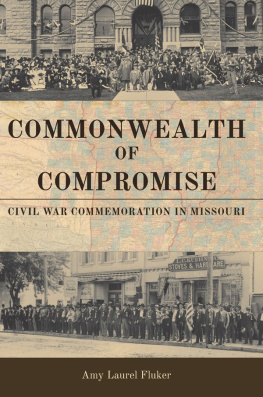

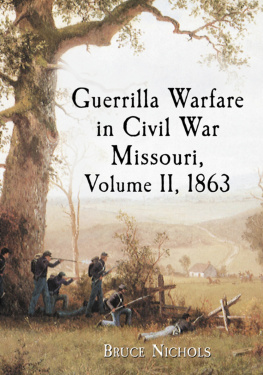
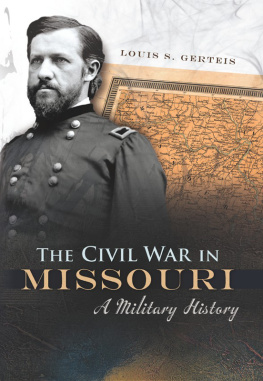
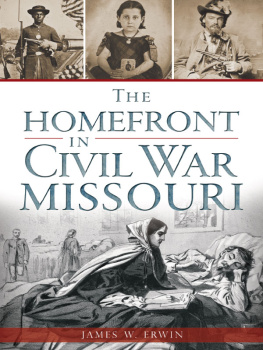
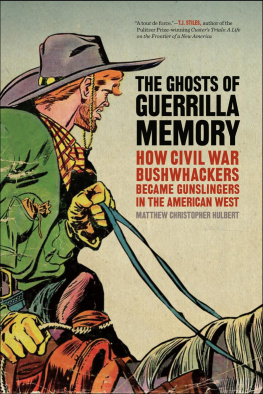
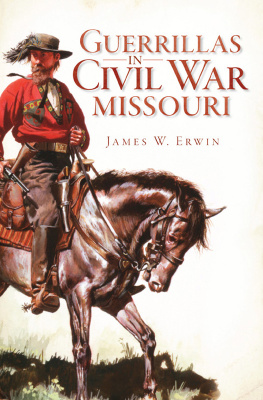
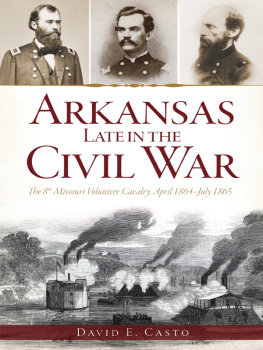
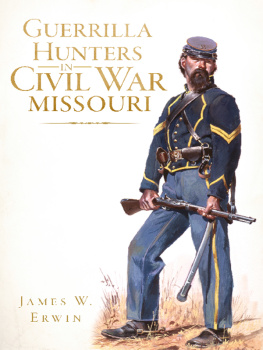
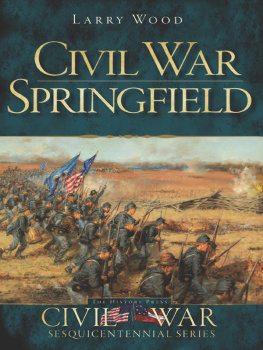
 This paper meets the requirements of the American National Standard for Permanence of Paper for Printed Library Materials, Z39.48, 1984.
This paper meets the requirements of the American National Standard for Permanence of Paper for Printed Library Materials, Z39.48, 1984.